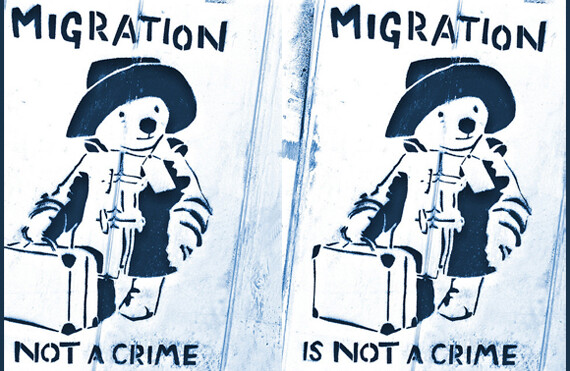This collection of papers is the outcome of the Right to Move Conference at Sophia University on December 12–13, 2009, sponsored by Sophia University, the Institute of Comparative Culture, and the Carnegie Council for Ethics in International Affairs.
Most research on migration has focused on empirical questions about the motives, strategies, and social and economic consequences of migration, or at the state level about the boundaries of citizenship and costs and benefits of migration in terms of social and economic development. We suggest that discussions of the migrant experience and migration policy might be differently informed by focusing explicitly on the ethics of migration. Do people have, for example, a fundamental "right to move," and if so, how do we ground this right in political and social theory?
There are many specific ethical questions about migration, both at the individual level of how people justify migration and at the collective level of why countries should encourage or limit migration. Beyond general philosophical purposes, focusing on definitional questions of ethics should have implications for reconceptualizing both migration policies and empirical research agendas on migration.
The Right to Move symposium represented an interdisciplinary and comparative discussion of the ethics of migration, with attention to migrant- and state-centered perspectives. This collection of resulting essays brings together the reflections of philosophers, sociologists, political scientists, legal scholars, and policy makers on this crucial contemporary topic.
CONFERENCE SUMMARY
Defining a Right to Move? Reflections on the Ethics of Migration Conference
James Farrer, Devin T. Stewart
Beyond the practical and cultural arguments for immigration reform, the strongest case for an internationally recognized right to move may arise out of the "worst-case scenarios" of global climate change.
CONFERENCE PAPERS PART 1
The Ethics of Language Choice in Immigration
Florian Coulmas
Should language rights be understood as collective rights or individual rights? Do language rights entail active endorsement of immigrant languages on the part of the state, or only passive toleration in the private sphere?
Cosmopolitanism as Virtue: Toward an Ethics of Global City Life
James Farrer
Without high levels of migration, and a related ethical commitment to cosmopolitanism, nation-states will fail to develop the individual and collective virtues suitable to "living well" in a global society.
Immigration as a Source of Renewal in Japan
John Haffner
Despite the many potential benefits of more immigration in Japan—economic, cultural, global—the country is likely to do little more than tinker with its immigration levels.
Precarious Lives: Involuntary Displacement of People in Asia Pacific Today
Mark Raper
If existing refugee protection and international humanitarian regimes are already under serious strain, how can global cooperation be extended for the protection of vulnerable persons displaced by climate change?
The Capabilities Approach and Collective Ownership of the Earth
Mathias Risse
If people of a particular country are using more than their proportionate share of the collectively owned planet, they should allow for immigration.
Reconciling an Ethical Immigration Policy with the Nation-state Myth
Devin T. Stewart
Don't we, as collective owners and stewards of the Earth, have a basic right to move? Indeed, the right to move is necessary to realize basic human rights such as the right to life, food, and work.
CONFERENCE PAPERS PART 2
Immigration Administration Control in Japan
Hiroshi Kimizuka
Japanese immigration policy seeks to balance the needs of migrants and refugees with the harmonious functioning of Japanese industry, society, and employment.
The Ethics of Undocumented Migration
Gracia Liu-Farrer
Using fieldwork data through participant observation and interviews, this paper explains the causes of undocumented migration out of Fujian and explores the ethical frameworks within which Fujian undocumented migrants operate.
Managed Rights, Managed Migration
Midori Okabe
While international migration is yet to be seen as an international public good, the international regime for orderly movement of people may eventually become a norm comparable to the Universal Declaration of Human Rights.
Linking Ethics and Self-Interest in Human Mobility
Michele Wucker
The ethical and self-interested choice in migration policy is to seek liberalized and rationalized migration that combines positive incentives with clear and fair entry criteria that take into account the needs of host and sending countries alike.
The Englishization of Higher Education in Asia and Migratory Flows of International Students
Kosaku Yoshino
The Malaysian case of English-medium higher education represents what may be called a postcolonial pattern of English-mediated globalization wherein the old center-periphery arguments of linguistic imperialism are no longer tenable.






